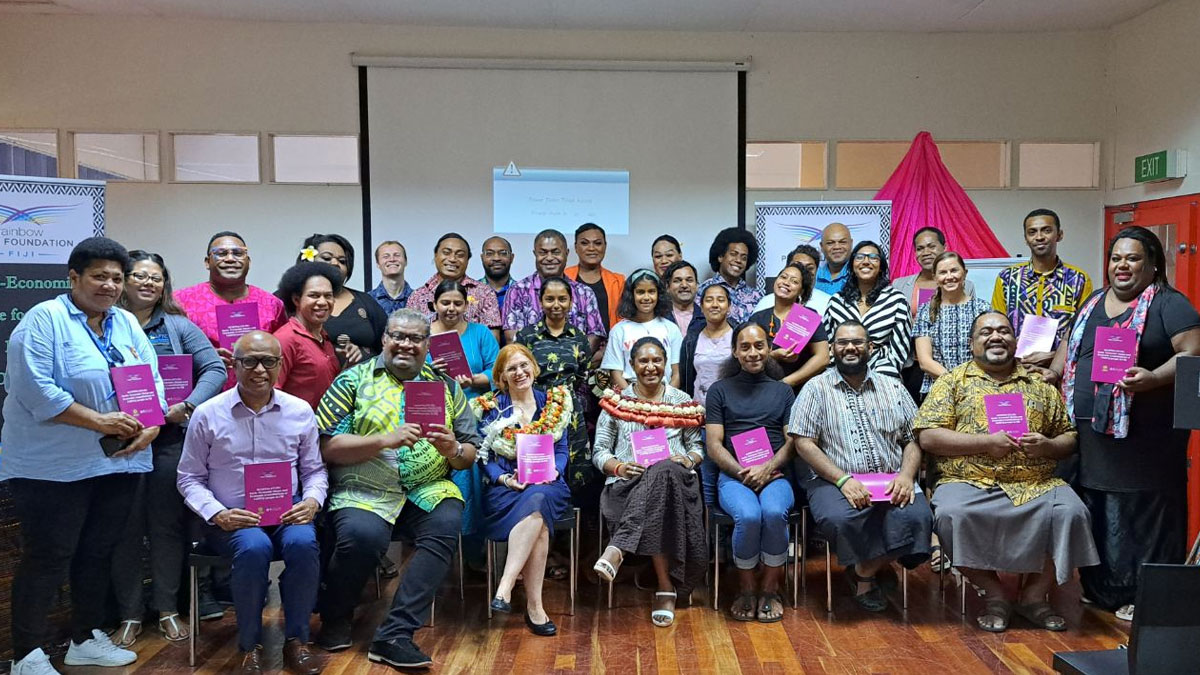
Investing in the LGBTIQ+ Fijian population is crucial for the socio-economic development of the country as majority of the people in the community did not complete university studies with 30 percent doing one or more year only, 28 percent of the respondents have completed secondary school and 12 percent have done some form of vocational or technical course.
This has been highlighted by Rainbow Pride Foundation Programme Manager Abdul Shaheed while speaking at the launch of Socio-Economic Contributions of LGBTIQ People in Fiji report done by Rainbow Pride Foundation in conjunction with Oxfam and Australian Department of Foreign Affairs.
He says 50 percent of LGBTIQ Fijians are not part of the decision making process and are unable to express their needs and therefore their needs are not catered.
Shaheed says some of the key findings in the report is that 51 percent of those in the LGBTIQ community surveyed said that they are not really satisfied at work because they are mostly engaged in informal paid work and this is because a lot of times, our high schools or primary schools and communities are not conducive to young people growing up as LGBT individuals and they tend to drop out from school, which means they do not get education, they do not go into formal sector and they end up in low paying informal jobs.
Shaheed says we need to understand that the LGBTIQ community's contribution to the economy is significant specifically in terms of tourism industry, the creative and cultural arts industry, which is linked to tourism industry as an indirect source of income for Fiji, in the fashion industry and the fashion industry is growing.
He further says at this stage they are hoping for increased level of engagement on the basis of the principle of inclusion and leaving no one behind.
The Programme Manager says if they get the discussion started with stakeholders such as Ministry of Commerce, Ministry of Women who is, in a way their line ministry as part of gender equality; Ministry of Youth and their entrepreneurship programme and the Seeds for Success Programmes where LGBTIQ inclusion could be made a pillar of the programme.
Shaheed further says because the fact that they do not have disaggregated data is really affecting them.
He adds they can produce these kinds of researchers and data all they want but until they can show to policymakers what percentage of the population is going to benefit, these data would not be of much use.
Stay tuned for the latest news on our radio stations


